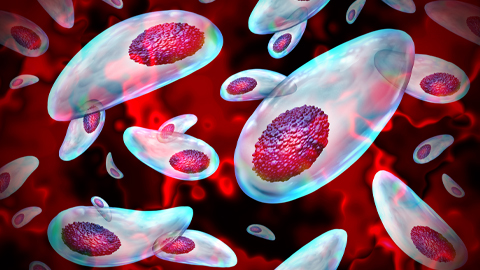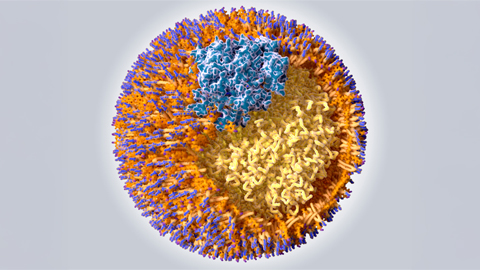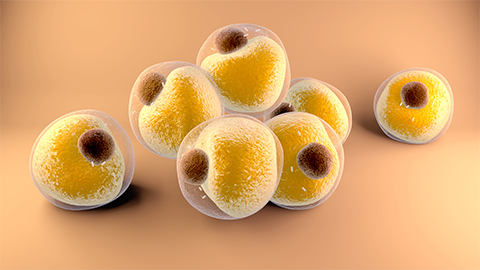ASBMB journals will be fully open access in 2021
Earlier today, the American Society for Biochemistry and Molecular Biology announced that its three peer-reviewed journals will become, as of January, open access. You can read the announcement in full below. The society also created a page with frequently asked questions.
As elected, editorial and administrative leaders of the American Society for Biochemistry and Molecular Biology, we are pleased to announce that the society’s three highly regarded journals — Journal of Biological Chemistry, Molecular & Cellular Proteomics and Journal of Lipid Research — will be fully open access beginning in January 2021.
The ASBMB exists to meet the needs and respond to the demands of its members, and our members, in line with the broader scientific community, have called for immediate and free public access to research published in ASBMB journals in order to reduce barriers to scientific knowledge and accelerate discoveries.
ASBMB journals have for years made accepted manuscripts immediately available for free as Papers in Press and have embargoed the final redacted versions of articles for subscribers for only a single year. In addition, authors have had the option to pay an additional fee for immediate open access of the final version of a paper or upload the accepted version for free to a public repository. As of January, the final versions of all articles will be immediately available to everyone, qualifying ASBMB journals as “gold” open access. This is important because an increasing number of funders of biomedical research are requiring its grantees to publish in only “gold” journals.
Our decision-making process was careful and consultative. During our months-long deliberations, we had to balance what is best for science and scientists with what is sustainable for a nonprofit organization. Ultimately, we determined that the ASBMB cannot achieve its goal of full open access alone, so we made the strategic decision to enter into an agreement with the commercial publisher Elsevier, which has experience transitioning subscription journals to full open access and the requisite technical expertise and infrastructure.
We want to emphasize that this agreement will not change the peer-review process at any of our journals. JBC, MCP and JLR remain committed to rigorous, fast and fair review — by active scientists.
We are happy to report, also, that the agreement will smooth the submission process for authors and reduce the cost of open-access publishing — for both members and nonmembers alike. It also will make our journals easier to read on mobile devices, discoverable on the platform ScienceDirect and, generally speaking, more nimble technologically.
Transitioning from a subscription model to an open-access model is complicated, but we know this is the right decision for the ASBMB. Throughout our deliberations, we kept focused on our goal: to make the high-quality papers we publish immediately and permanently available for everyone to read, download, copy and distribute.
We will share more information on the transition in the months to come. In the meantime, we hope that you will reach out to us if you have any questions or concerns.
Sincerely,
Gerald Hart (President, ASBMB)
Joan Conaway (Treasurer, ASBMB)
Sandra Weller (Chair, ASBMB Publications Committee)
Toni Antalis (President-elect, ASBMB)
Lila M. Gierasch (Editor-in-Chief, Journal of Biological Chemistry)
Alma Burlingame (Editor-in-Chief, Molecular & Cellular Proteomics)
Kerry-Anne Rye and Nicholas O. Davidson (Co-Editors, Journal of Lipid Research)
Barbara Gordon (Executive Director, ASBMB)
Nancy Rodnan (Senior Director, ASBMB Publications)
Steve Miller (Deputy Executive Director and Chief Financial Officer, ASBMB)
Enjoy reading ASBMB Today?
Become a member to receive the print edition four times a year and the digital edition monthly.
Learn moreGet the latest from ASBMB Today
Enter your email address, and we’ll send you a weekly email with recent articles, interviews and more.
Latest in Science
Science highlights or most popular articles

Targeting Toxoplasma parasites and their protein accomplices
Researchers identify that a Toxoplasma gondii enzyme drives parasite's survival. Read more about this recent study from the Journal of Lipid Research.

Scavenger protein receptor aids the transport of lipoproteins
Scientists elucidated how two major splice variants of scavenger receptors affect cellular localization in endothelial cells. Read more about this recent study from the Journal of Lipid Research.

Fat cells are a culprit in osteoporosis
Scientists reveal that lipid transfer from bone marrow adipocytes to osteoblasts impairs bone formation by downregulating osteogenic proteins and inducing ferroptosis. Read more about this recent study from the Journal of Lipid Research.

Unraveling oncogenesis: What makes cancer tick?
Learn about the ASBMB 2025 symposium on oncogenic hubs: chromatin regulatory and transcriptional complexes in cancer.

Exploring lipid metabolism: A journey through time and innovation
Recent lipid metabolism research has unveiled critical insights into lipid–protein interactions, offering potential therapeutic targets for metabolic and neurodegenerative diseases. Check out the latest in lipid science at the ASBMB annual meeting.

Melissa Moore to speak at ASBMB 2025
Richard Silverman and Melissa Moore are the featured speakers at the ASBMB annual meeting to be held April 12-15 in Chicago.
